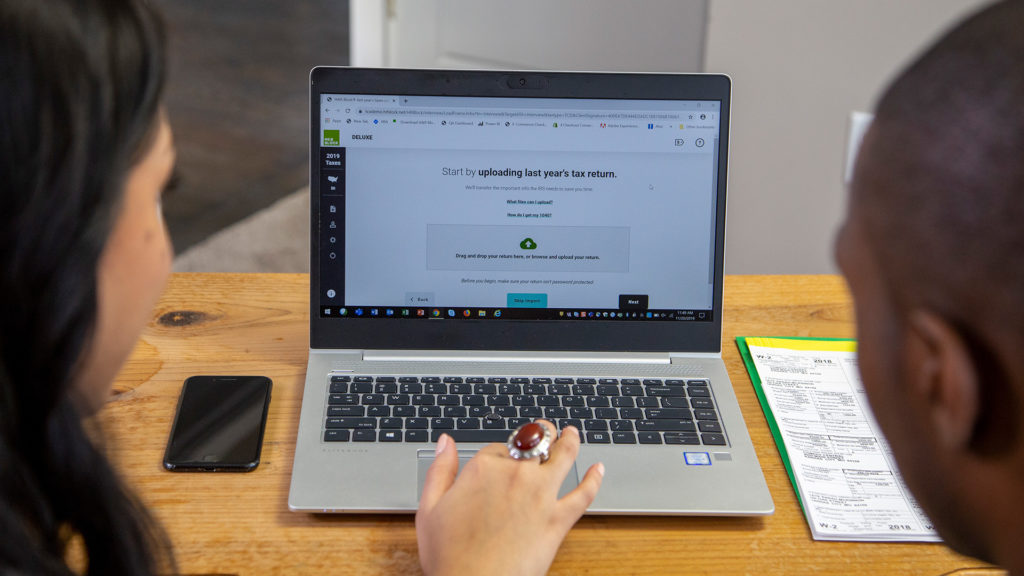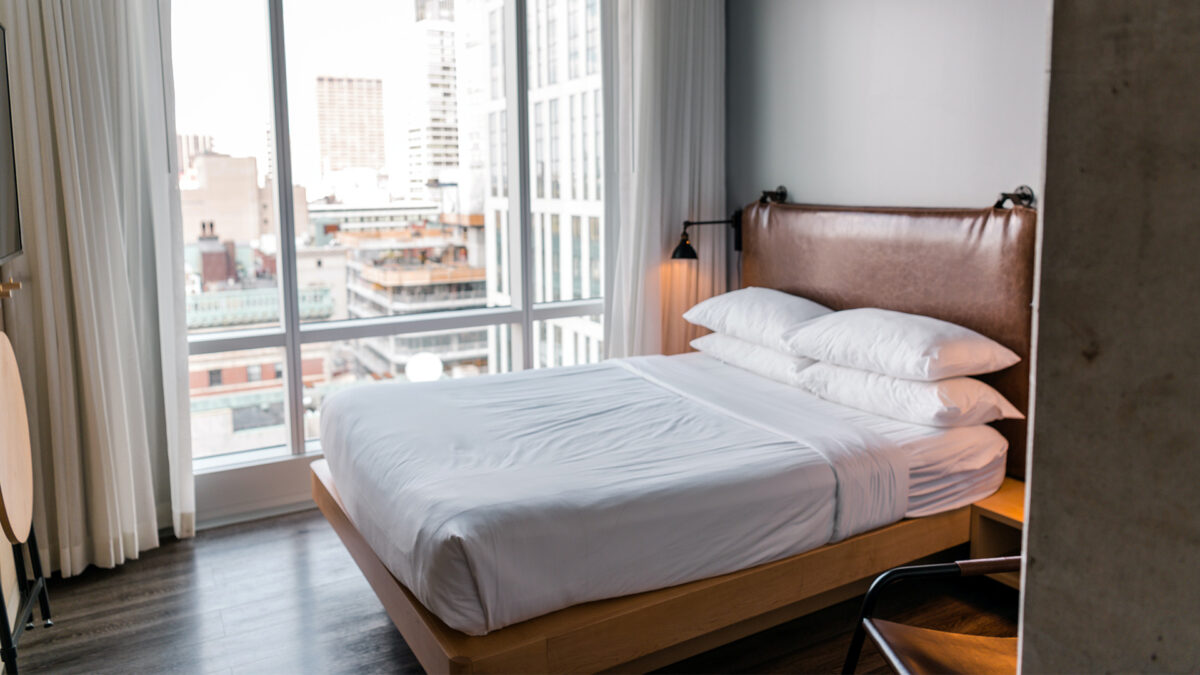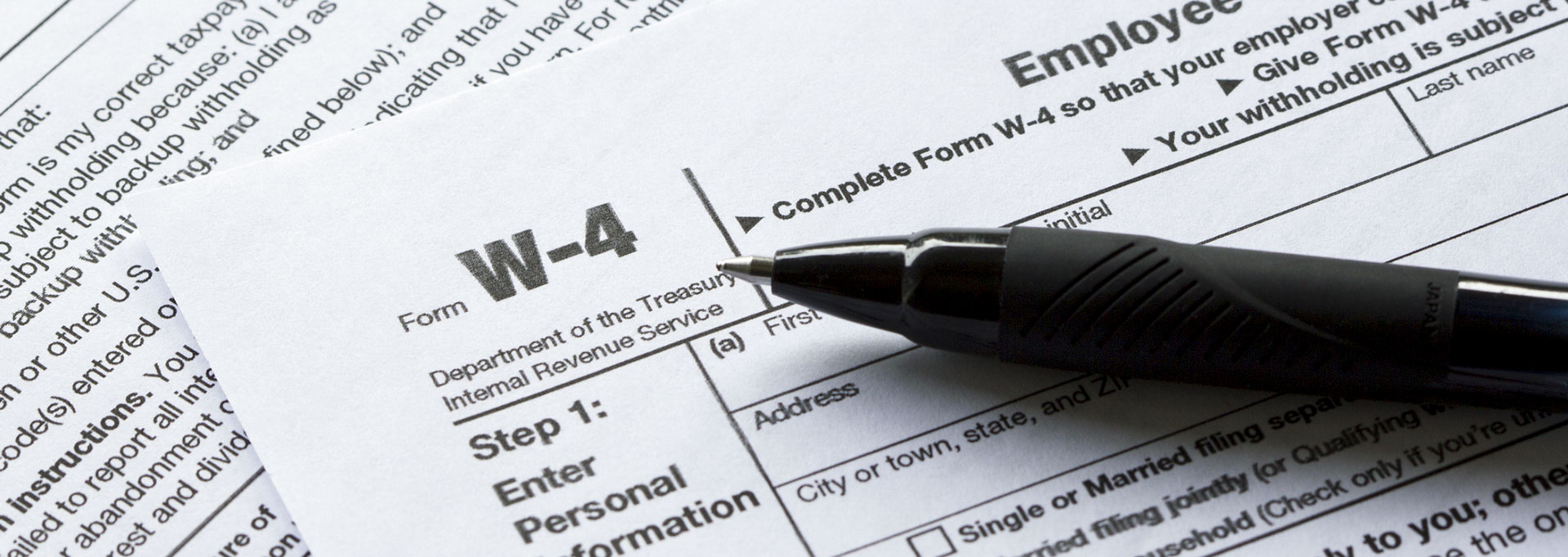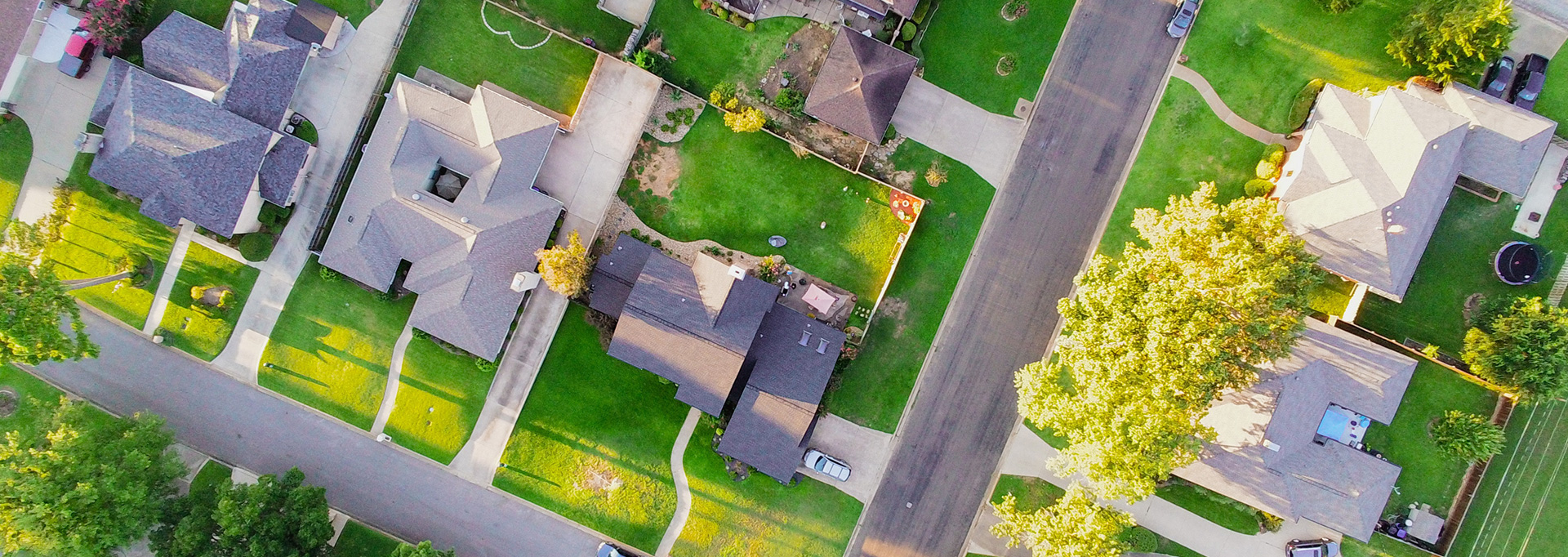Most products on this page are from partners who may compensate us. This may influence which products we write about and where and how they appear on the page. However, opinions expressed here are the author's alone, not those of any bank, credit card issuer, airline or hotel chain.
If you have a space to rent, you probably love that you can earn extra cash by renting it out on sites like Airbnb, Vrbo, and Hipcamp. But renting out the space is the easy part. The aftermath—specifically, figuring out what you need to do come tax time—is a bit tougher.
In some cases, you may not have to report this income. But if you meet one of two requirements established by the IRS, the government will want to know about it. The tax code can get pretty complex, so we’ll break it down for you in this simple tax guide for Airbnb and Vrbo hosts.
When Do I Have to Report Airbnb or Vrbo Rental Income?
Whether you have to report your short-term rental income depends on two main factors: whether you rented out your own residence (even if it’s only a part-time vacation home), and if so, how often you rented it out.
If You’re Renting Out Property You Don’t Live In
When you live in a property that is not your primary residence, even part-time, the IRS considers you a landlord, and you must report that income. This might be the case if, for example, you built a bunch of tiny homes to rent out but don’t regularly use them yourself.
If You Rent Out a Place You Often Stay In and Use
The rules change if you rent a space like a vacation investment property because personal use and rental use are taxed differently. Basically, your next steps depend on how often you use the space.
If you personally used your rental for more than 14 days in a year, or if you used your rental more than 10% of the time it was rented out (whichever is greater), then your property is considered mixed-use; i.e., you’re both renting and living in your own residence. So, you’ll need to include this income on your tax return. How you file will depend on what your Airbnb or Vrbo listing offers customers. (More on this below.)
Exception: That sounds complicated, but here’s the good news: if you are renting out your own residence while still living in it and you rent it for fewer than 15 days, then you don’t have to report that income at all — even if the rental platform you used issues you a Form 1099-K. On the flip side, you don’t get to take any deductions for it either, but it simplifies your tax situation.
 Related Article
Related Article
9 Best and Cheapest Online Tax Services in December 2024
How Do You Report Airbnb or Vrbo Income on Your Taxes?
If you’re required to report your short-term rental income, you’ll do it on either Schedule E or Schedule C when you file your tax return.
Schedule E: If You Provide the Rental Only
Most Airbnb, Vrbo and other short-term rental hosts use Schedule E to report rental real estate income. You’ll use this if, like most short-term rental hosts, you simply provide a clean rental for customers to stay in, with no extra services while they’re staying with you.
If you use Schedule E to report your Airbnb or Vrbo income, the IRS does not consider you self-employed, so you don’t need to worry about paying self-employment taxes or making quarterly estimated tax payments. You can take deductions for expenses (more on that later), but your deductions can’t be more than your income.
Schedule C: If You Provide the Rental Plus Other Services
Sometimes short-term rental hosts provide their guests extra services, such as cooking breakfast, making reservations or driving them to and from an excursion. If you provide “substantial services” like this, the IRS considers you a self-employed small business owner (versus a passive real estate investor), and you’ll need to file a Schedule C instead.
If you earned more than $400 from your rental as self-employed income, you’ll need to use Schedule SE to report and pay self-employment taxes. If you think you’ll owe more than $1,000 in self-employment taxes for the year (note that’s $1,000 in taxes, not income), you’ll generally also need to pay estimated quarterly taxes via Form 1040-ES.
 Related Article
Related Article
Tax Guide & Tips for the Self-Employed & Independent Contractors
Tax Tips for Airbnb & Vrbo Hosts
Here are a few other things to consider as you think about your upcoming taxes on Airbnb or Vrbo income:
1. Keep Good Records
Even if you plan to stay under the 14-day rental rule and not report your income, you’ll still need to keep detailed records, if for no other reason than to show the IRS you’re following the rules. Here’s a general list of what to keep records of:
- Proof of advertisement, if any
- Repairs or upgrades you make
- Dates you rented your property
- Dates that you personally stayed on your property
- Tax forms you receive, like mortgage interest statements
- Mileage traveled for rental purposes, such as cleaning between customers
- Square footage of your rental, if you’re renting out a room or a portion of your home
- Receipts for all expenses, including hosting fees, turnaround/cleaning services, gas for travel expenses, amenities and tax preparation fees
2. Submit a Form W-9 to Your Rental Platform
For the calendar year 2023, rental platforms are required to withhold a percentage of your earnings if you do not provide them with the correct tax information. They may withhold up to 30% tax, but the exact tax withholding percentage will vary. For most hosts, this amount is higher than what you’d actually need to pay.
Instead, make sure you file a W-9 with the rental website you’re using so they stop withholding extra for taxes. This means you’ll need to save enough money to cover the tax bill on your own, but unless you’re a very high-income earner, you can probably safely set aside a smaller amount.
3. Don’t Forget About State and Occupancy Taxes
In addition to federal taxes, you may also have to pay state income taxes and/or local occupancy taxes, depending on where you live.
Some websites like Airbnb will collect and pay occupancy taxes on your behalf, but not always. Check with your state and local tax agencies to see if you’ll owe taxes on your Airbnb or Vrbo income, or contact a tax professional to help you determine how (and how much) to pay.
4. Maximize Your Deductions
Depending on how you file your taxes, you can claim a portion of your expenses as a deduction. Refer to your rental records to help determine which expenses were for personal or rental use—especially if you used the unit for both purposes. For example, you can deduct the money you spent on internet and electricity bills while your home was rented out but not when you used it.
Here’s a list of some of the things you might be able to claim as a deduction:
- Utilities
- Advertising
- Vacation rental software
- Hosting fees
- Depreciation
- Property taxes
- Mortgage interest
- Property insurance
- Amenities like furniture, dishes, welcome gifts, towels and other household supplies
- Property maintenance, such as snowplowing and turnaround/cleaning services
5. Consider Hiring an Accountant
Airbnb and Vrbo rental income taxes can be fairly easy to understand at a high level, but things can get complicated as you become a more active host with higher earnings. For example, how much should you withhold for taxes? How do you split up shared business and personal expenses? Do you need to pay state taxes?
Detailed recordkeeping and tax return preparation can be a challenge for many folks, especially if you’re not used to the behind-the-scenes aspects of running a business. Even the most experienced entrepreneurs prefer to work with an accountant to file their taxes properly and save money.
For that reason, it’s a good idea to consider hiring an accountant if you frequently rent out your property on Airbnb or Vrbo. Search for a tax pro familiar with Airbnb or other rental income scenarios. The cost of getting your taxes done right is money well spent, and you can deduct these fees anyway.
FAQs
-
Not necessarily. If you provide “substantial services” to your guest more akin to a traditional bed and breakfast, such as meals or concierge services, the IRS considers you a self-employed small business owner. But if all you do is provide property for rent—with no other add-on services while your guests are there—then the IRS treats you as a passive real estate investor.
-
You could owe penalties if the IRS learns that you didn’t report income as required—whether from Airbnb, Vrbo, Hipcamp or any other source. You could also owe interest on those penalties, stemming from the time you should have paid them until you settle and pay your overdue balance in full.
-
Rental platforms typically send the IRS a Form 1099-K detailing your rental income if you made more than $20,000. In the future, the IRS plans to lower the reporting threshold to just $600. In 2024, the agency expects to have a $5,000 threshold to help transition to the new limit.
-
If your rental property was booked for more than 14 days in a calendar year, you can deduct rental-related costs you paid on the days it was booked. You may be able to deduct all or part of your costs for mortgage interest, utilities and turnaround services, among other things.
-
Yes. If you also use the residence as a home, you will have to calculate the percentages to know how much you can claim. For example, if you rent it out for a third of the year, you can likely deduct 33% of the cost of utilities and services.
-
For 2023, the threshold for reporting to the IRS is $20,000. The IRS plans to lower this to $600, but the change has been delayed a couple times. In 2024, the threshold is expected to be $5,000 before eventually transitioning to that $600 limit in the future.
However, another factor is the 14-day rule. If you do not rent your vacation home for more than 14 days per year, and if you also use the vacation home yourself for at least 14 days per year, you do not need to report earnings.
-
It's generally considered rental income if you are a passive host, not providing substantial services. If you do provide substantial services, it's considered a business. However, if you stay within the 14-day rule, there is no need to report income.


















